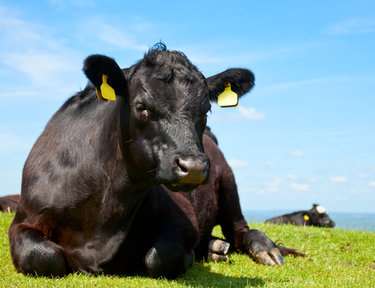The Canadian government is granting some drought-affected producers the ability to defer tax burdens
By Jennifer Jackson
Canadian livestock producers may be eligible for tax deferrals because of the 2016 drought.
Some producers will be able to “defer a portion of their 2016 sale proceeds of breeding livestock until the next year to help replenish the herd,” according to a Nov. 22 government release.
Specifically, regions in Ontario, Alberta, and Quebec qualify for drought relief.
The tax relief allows producers to offset their deferred income next year by the cost associated with replacing animals; this ultimately minimizes the tax burden of the original sales.
The 2016 growing season lacked significant moisture in parts of the country, resulting in poor forage for livestock. Some producers had to sell portions of their breeding herd to combat feed shortages, according to the release.

"The government of Canada understands the impacts that drought and other extreme weather conditions had on farm operations this year, forcing some producers to make difficult business decisions,” Lawrence MacAulay, Minister of Agriculture and Agri-Food, said in the release.
“This tax relief will allow affected farmers to defer a portion of their sales to the next year, assisting them in making sound herd-management decisions."
While the Beef Farmers of Ontario (BFO) is appreciative of the government recognition for producer assistance, Dave Stewart, executive director of BFO, believes the drought impacts outweigh the benefits of the tax deferral.
“While the ability to defer a portion of 2016 breeding stock sales will provide some level of assistance to producers in drought-stricken areas, it will not sufficiently address or mitigate the impacts of drought for producers in the hardest hit areas,” says Stewart in an emailed statement. “As well, critical areas with significant drought damage, such as Haldimand County, are excluded from the provision.”
Only producers residing in the designated drought regions can apply for the tax deferral, when completing their 2016 income tax returns.
“BFO has requested that Minister Leal initiate a more comprehensive drought disaster support program to allow producers to purchase supplemental feed to maintain herds throughout the winter,” says Stewart.
The full list of regions eligible for tax deferrals is on the Agriculture and Agri-Food Canada website.